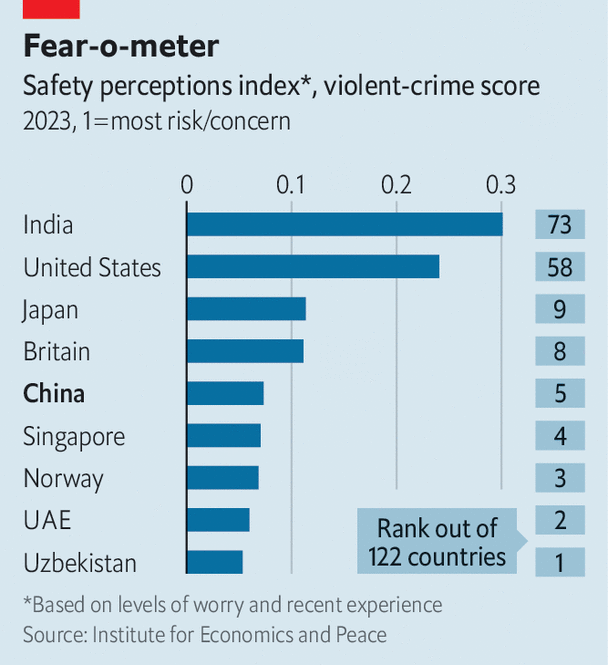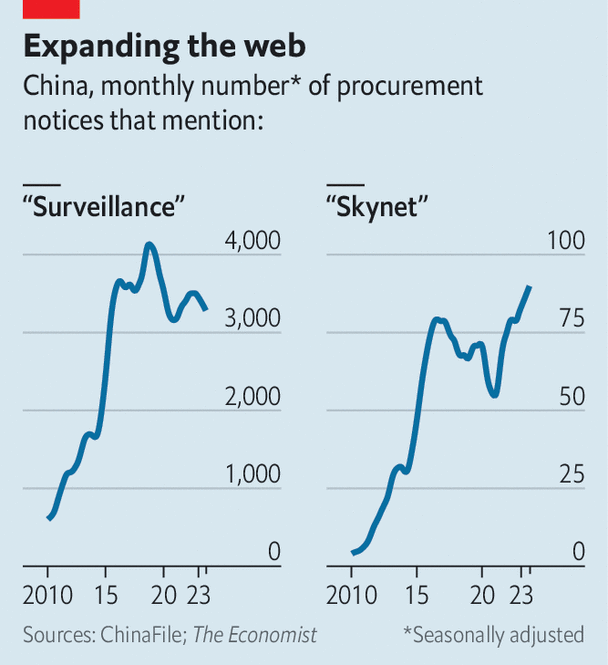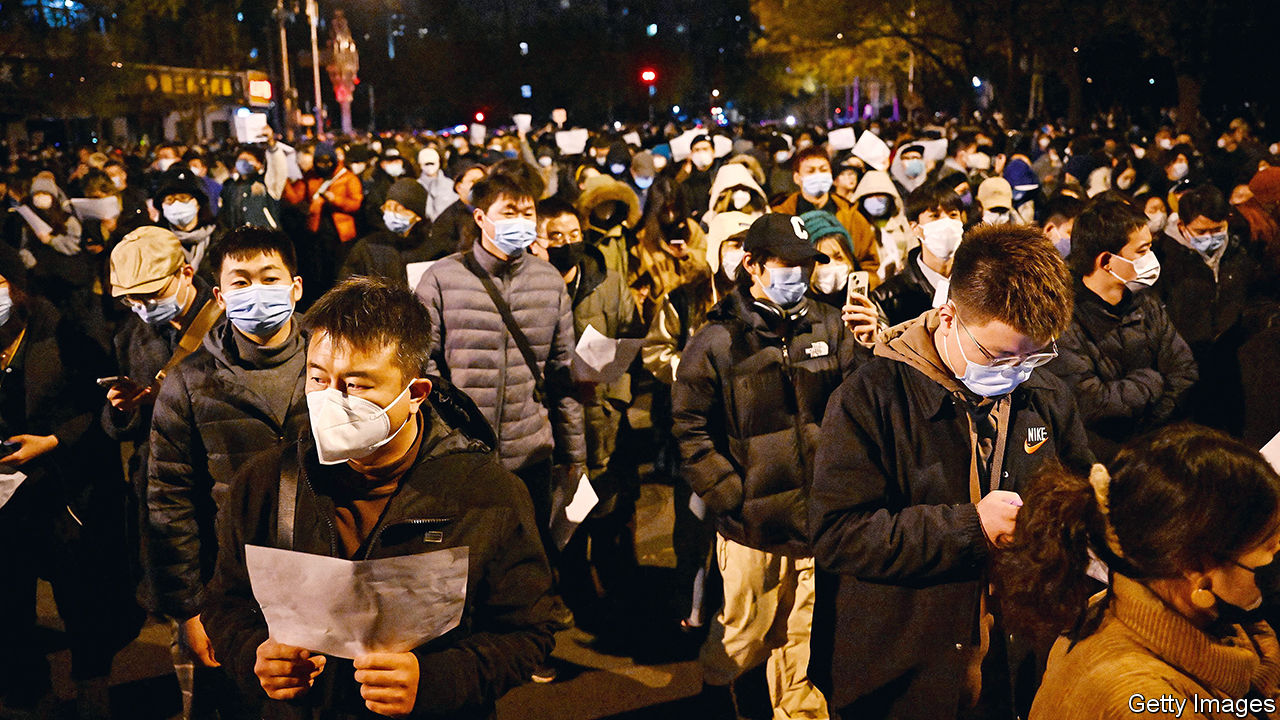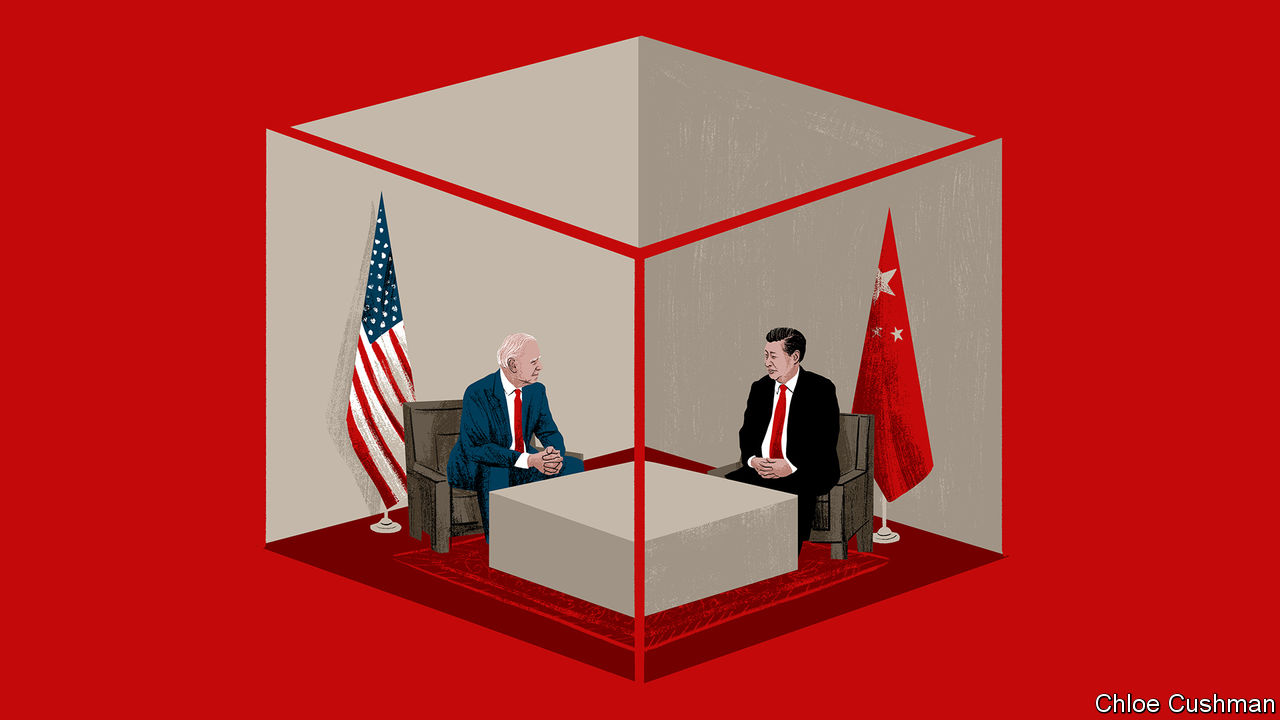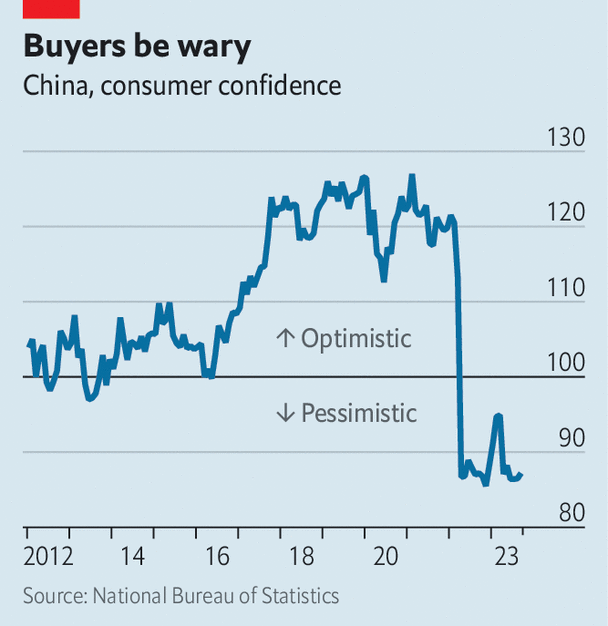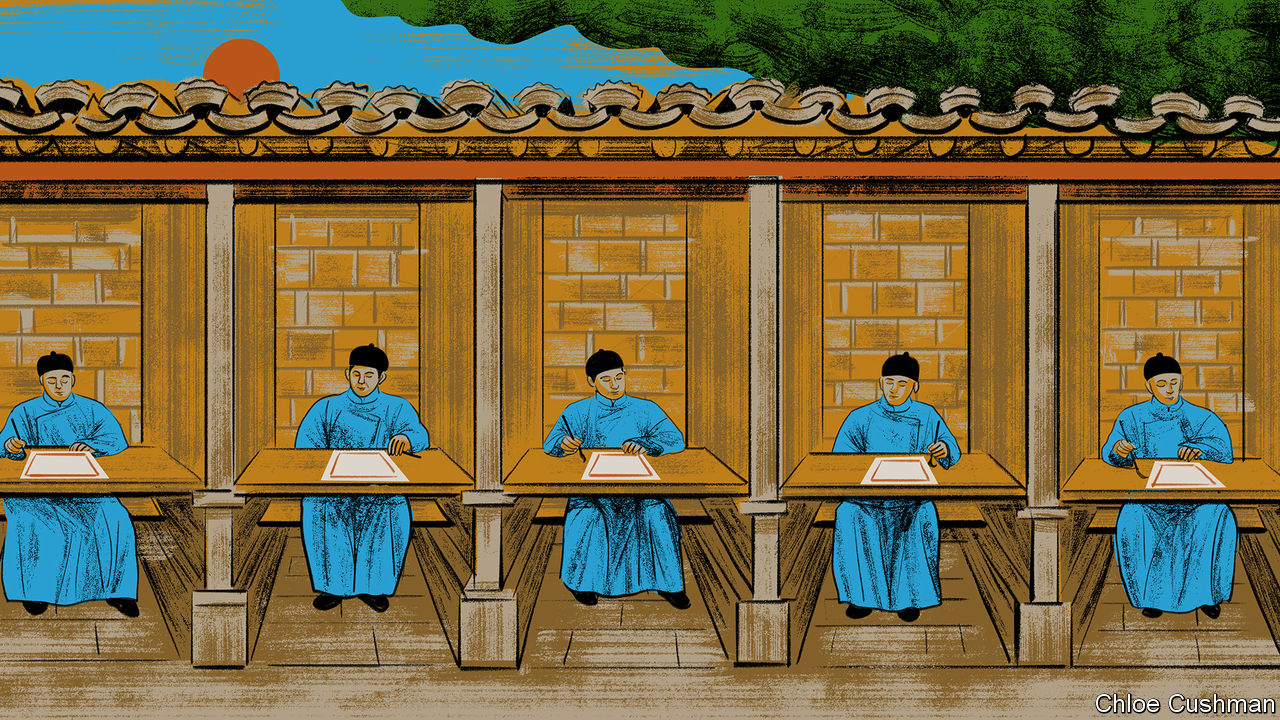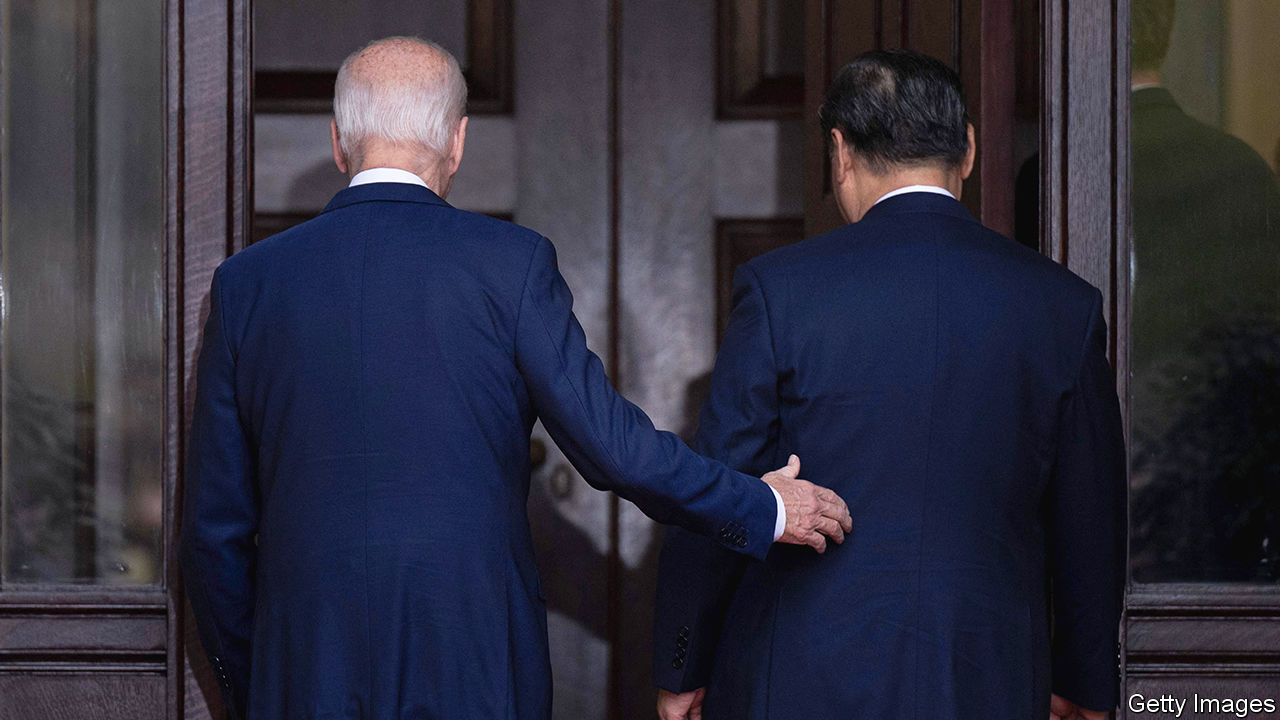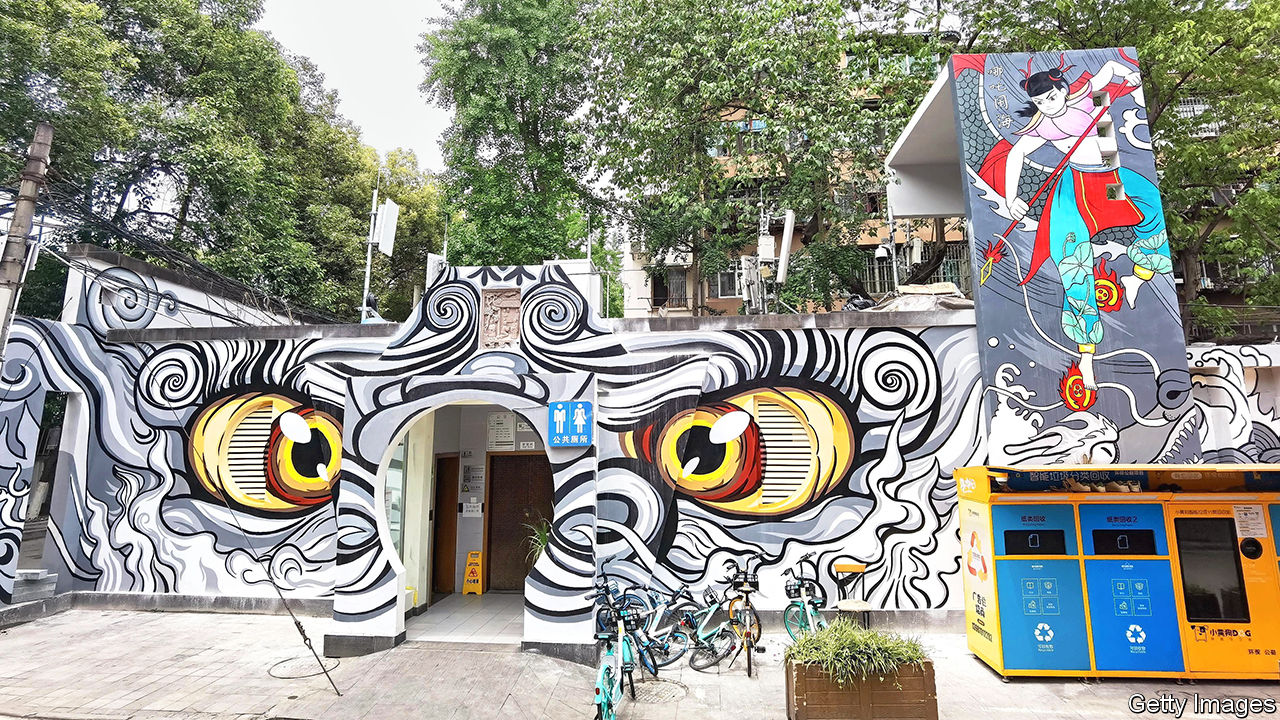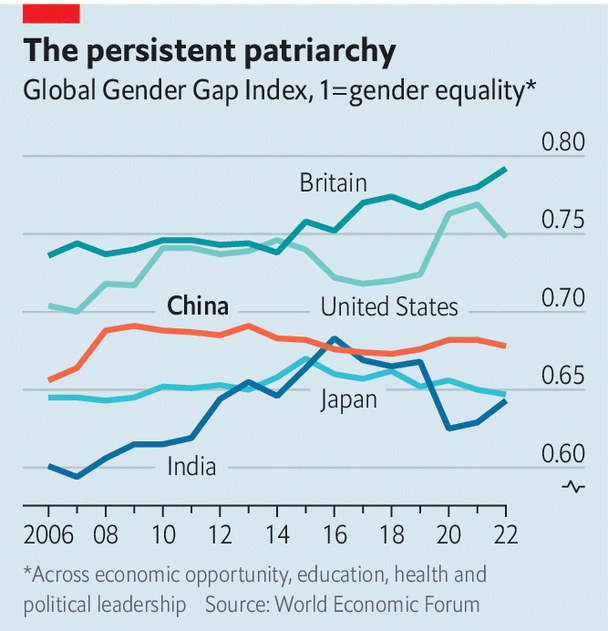ON SEPTEMBER 22nd, in the north-eastern city of Yanji, a police officer discovered that his pistol had gone missing. Lucky for him, the Chinese police control the world’s largest network of surveillance cameras. Video footage showed that the gun had been stolen at a vegetable market. The thief’s movements were traced to a rural county some 500km away. Dozens of officers were sent to arrest him. Within 24 hours of the theft the gun was recovered, according to state media. Such fearsome efficiency, say Chinese officials, has helped their country…
Category: The Economist
China’s enormous surveillance state is still growing
The sleepy county of Kaijiang, on the eastern fringes of Sichuan province, is hardly a hotbed of unrest. The authorities there seem intent on keeping it that way. They are hoping to upgrade the county’s portion of China’s “Skynet” surveillance system. According to a procurement notice from August, officials in Kaijiang want cameras that “support detection of more than 60 faces simultaneously”. The local system should be fast enough to analyse up to 100 faces per second and have the capacity to store up to 1.8bn images (Kaijiang has a…
A year on from the white-paper protests, China looks much different
Listen to this story.Enjoy more audio and podcasts on iOS or Android. Your browser does not support the <audio> element. It was a year ago this month that China experienced the biggest wave of unrest since the Tiananmen Square protests of 1989. Thousands of people, mostly students and youngsters, gathered in cities across China to show their displeasure with the government’s exceptionally harsh covid-19 controls. The public was fed up with the constant testing, the brutal lockdowns and the restrictions on movement. Some of the demonstrators chanted slogans. A few…
Why Xi Jinping sounds friendlier to America
Listen to this story.Enjoy more audio and podcasts on iOS or Android. Your browser does not support the <audio> element. When invited to sum up the state of China’s relations with America, a close observer in Beijing drops a surprising literary reference, comparing the countries to damned souls sent to Hell in “Huis Clos” (“No Exit”), a play by Jean-Paul Sartre. In the gloomy Frenchman’s masterwork, Hell turns out to be an antique-filled sitting room peopled by unlikeable strangers. These wretches come to realise that they must endure each other’s…
China’s shoppers are gloomy and picky
Five years ago Jack Ma, the founder of e-commerce giant Alibaba, briefly tried his hand at selling lipstick. To promote China’s largest online shopping festival, called “Singles’ Day”, Mr Ma attempted to sell more lipstick in five minutes than Li Jiaqi, a live-streaming salesman known as the “Lipstick King”. The king won. Five years on, Mr Li’s crown has slipped a little. In September he lost his cool with an online commenter who questioned the price of an eyebrow pencil he was showcasing. “How is it expensive? It has been…
Xi Jinping repeats imperial China’s mistakes
Listen to this story.Enjoy more audio and podcasts on iOS or Android. Your browser does not support the <audio> element. One hopes Gui Youguang, a 16th-century Chinese bureaucrat, knew how to enjoy success in the moment. By the standards of the time, he was old when he passed the Ming dynasty’s most exacting grade of test for mandarins, after decades of failed attempts. Alas, not long after securing a jinshi degree at 59, Gui died. The rigours of imperial China’s civil-service examination system—the keju, used to select scholar-officials for over…
Joe Biden and Xi Jinping rediscover the joy of talking. Good
For months China has accused America of trying to contain its economy and encircle its territory. But in November the Communist Party’s propaganda changed tune: instead of denouncing this “new cold war”, it hailed America’s and China’s shared history of fighting Japan in the second world war, highlighting the role of American volunteer fighter pilots known as the “Flying Tigers”. State media also recalled Xi Jinping’s fondness for a couple that hosted him in rural Iowa in 1985. Mr Xi, China’s leader, brought that spirit of detente to San Francisco…
Xi Jinping wants China to have better toilets
These are hard times for many local governments in China. Slowing economic growth and a teetering property market make it hard for them to service their massive debts. Some even struggle to pay public-sector workers. But instructions from Xi Jinping, the country’s leader, are hard to ignore. In Guangyuan, a city in the south-western province of Sichuan, officials met last month to study his edicts relating to lavatories. Eradicating noxious facilities and building hygienic ones is a goal that Mr Xi heartily champions. In 2015 he called for a “toilet…
The people of Hong Kong are growing more tolerant
The Queen Elizabeth Stadium in Hong Kong typically hosts rather humdrum events, such as debating competitions. But on November 4th the arena shimmered with glow sticks, as some 1,500 spectators waved rainbow flags. In some ways the opening ceremony of the Gay Games was similar to that of the Olympics, with LGBT+ athletes marching alongside their countrymen (see picture). The Gay Games, though, have a more carnivalesque atmosphere. The weeklong event, delayed a year because of the pandemic, has come to Hong Kong as the city reconsiders the rights of…
China wants women to stay home and bear children
Listen to this story.Enjoy more audio and podcasts on iOS or Android. Your browser does not support the <audio> element. Every five years China holds a national women’s congress. Like the country’s annual plenary session of parliament or the Communist Party’s own five-yearly congress, the gathering of women is a pomp-filled affair, taking place on the red carpets and under the gaudy chandeliers of the Great Hall of the People in Beijing. Few people pay much attention to it. But at this year’s event, held in late October, subtle changes…
